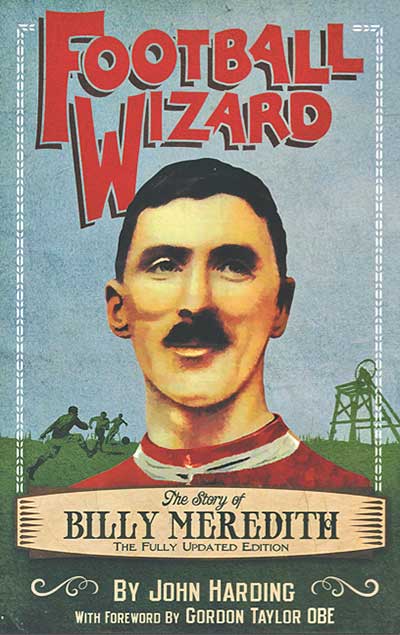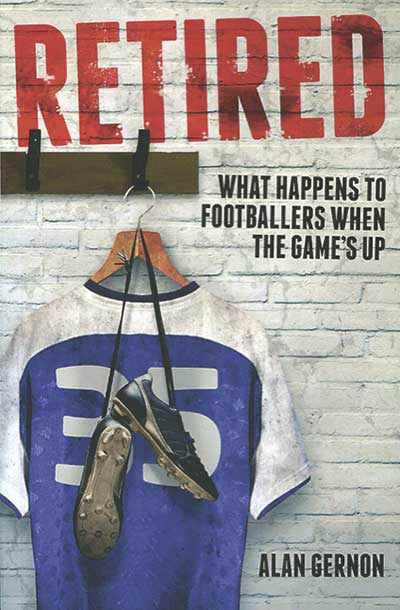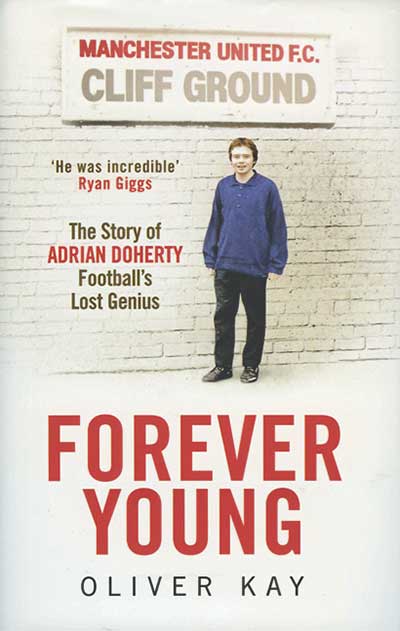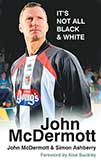 The story of
Billy Meredith
The story of
Billy Meredith
by John Harding
Empire Publications, £16.95
Reviewed by Mike Ticher
From WSC 332 October 2014
Buy this book
If you had to choose one player to encapsulate the Edwardian football world, you would be hard pressed to do better than Billy Meredith. In an extraordinary career, which ended in 1924 FA Cup semi-final defeat at the age of 49, the celebrated Welsh winger was central to many of the era’s key moments.
He scored the winner for Manchester City in the 1904 FA Cup final, then won the League with Manchester United in 1908 and 1911, and claimed another Cup winner’s medal in 1909. He was with United when Old Trafford opened in 1910, and back with City when they moved to Maine Road in 1923.
But Meredith’s greater significance lies in his turbulent relationship with clubs and the football authorities, and his key role in setting up the Players’ Union, the forerunner of the PFA. In 1905 he was suspended for a year after the FA found him guilty (in a closed inquiry) of trying to bribe an Aston Villa player to lose the final game of the season. Incensed by City’s perceived failure to support him, Meredith spilled the beans on bonuses the club had been paying in breach of the recently introduced maximum wage. The case devastated City, sparking the departure of Meredith and several others to United, and cemented Meredith’s hostility to the hypocrisy of the system, as well as personal bitterness over money that would last until he died, a poor man, in 1958.
The suspension helped drive Meredith to re-establish the union, which collided head-on with the FA in 1909, when the whole United team was suspended for refusing to sign contracts that effectively meant disowning the union. Its fledgling power was broken, but its structure survived to give birth to the PFA, which finally defeated the maximum wage and the iniquitous retain-and-transfer system in the early 1960s. As the postscript to John Harding’s book notes, it was not until the Bosman ruling that Meredith’s full vision of contract freedom was realised.
As if all that were not enough, Meredith was also involved, though not implicated, in the 1915 fixed match between Liverpool and Manchester United, for which eight players received life bans – the final scandalous blast of United’s years as a “rebel” club of stubbornly confrontational players.
Harding’s groundbreaking biography was first published in 1985, and has worn well with little amendment. Without over-elaborating, he sketches a rounded portrait of Meredith’s complex personality, rooted in his Methodist upbringing in the mining village of Chirk. Meredith’s rigorous attitudes to fitness, work, industrial solidarity, Welsh nationalism and alcohol (he was a teetotaller, despite running pubs in retirement) are neatly teased out in that context.
But there is still room for a fascinating broader picture of Manchester football in a tempestuous phase of its development, and thoughts on how Meredith’s playing style meshed with the tactics of the day – in curmudgeonly old age he scorned the new-fangled ways of whippersnappers such as Stanley Matthews.
Meredith complained that the Edwardian FA treated the professional footballer as “a mere boy, or a sensible machine or a trained animal”. Harding’s work is far from a dry polemic or hagiography, but a timely reminder of how the players’ struggle to overcome that contemptuous attitude began.
Buy this book
 What happens to footballers when the game’s up
What happens to footballers when the game’s up  The story of Adrian Doherty, football’s lost genius
The story of Adrian Doherty, football’s lost genius 
 The story of
Billy Meredith
The story of
Billy Meredith by John McDermott
& Simon Ashberry
by John McDermott
& Simon Ashberry